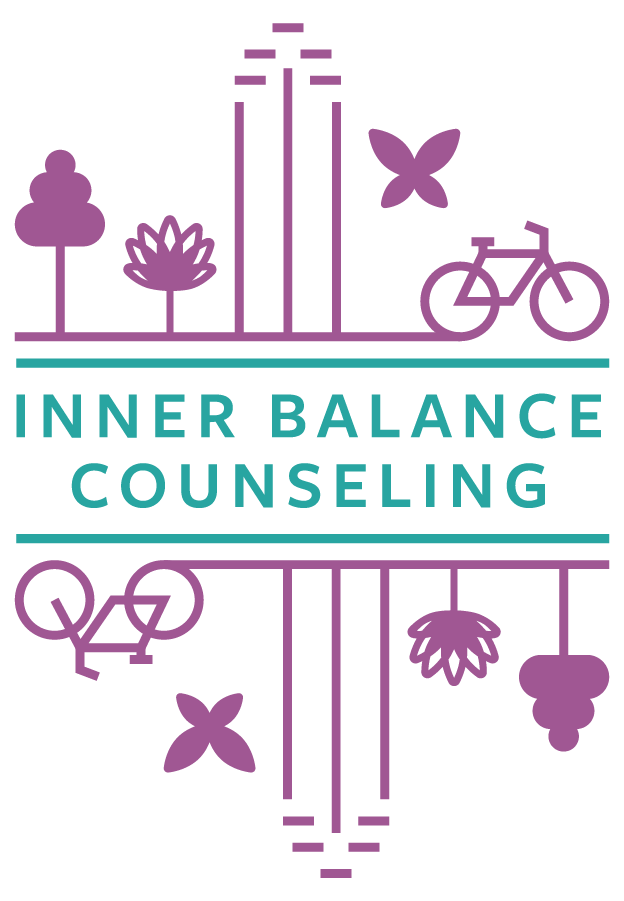Spotlight on EMDR: with Inner Balance Therapist Danielle Jeraci, LAPC
You may have heard of a type of therapy called EMDR which is becoming more and more common for its effectiveness in treating trauma. But what exactly is it? According to the EMDR Institute, “Eye Movement Desensitization and Reprocessing (EMDR) is a psychotherapy treatment that facilitates the accessing and processing of traumatic memories and other adverse life experience to bring these to an adaptive resolution.” Not only is EMDR a rapid way for healing trauma; it is also used for enhancing performance in areas such as athletics, business, and relationships. Here, Inner Balance therapist Danielle Jeraci shares with us a bit more about what drew her to this therapy, and the results she sees with clients who try it.
Can you tell us a little bit about what EMDR (Eye Movement Desensitization and Reprocessing) is and what sets it apart from other approaches to counseling?
EMDR is an evidence-based, psychotherapy approach that was developed in the late 1980s. EMDR is primarily used to treat symptoms of trauma and has been shown to be effective in the treatment of PTSD and other trauma-related conditions. I have also found it useful for people experiencing anxiety about an anticipated event and in changing their views on daily stressors.
The goal of EMDR is to help people reprocess the traumatic memories in a way that reduces their emotional intensity and allows them to integrate the experience into their overall life story. Unlike traditional talk therapy, which may take months or even years to produce results, EMDR can often produce significant improvements in just a few sessions.
What led you to seek training in this approach?
Upon graduating, I had a clear goal in mind - to receive training in EMDR. My uncle, who is a psychologist running a private counseling practice in Singapore and was also my mentor during my internship, repeatedly emphasized the effectiveness of EMDR, which he had found to be the most effective technique in his 13 years of experience. I was able to witness its efficacy firsthand while processing a trauma from a recent event, and it further solidified my desire to facilitate healing through this method.
What outcomes do you see with clients who you use EMDR with?
While the outcomes I observe are individualized, I generally find that clients who are willing to trust the EMDR process and delve into processing traumatic memories tend to be more successful in moving forward and integrating positive decision-making and mindset shifts, compared to clients who solely rely on talk therapy. While it can be challenging to revisit traumatic memories, I recognize the importance of doing so to shift negative beliefs and perspectives associated with them. I have witnessed firsthand how this shift can transform the way clients recall and ultimately process those memories.
Who do you think could benefit from this approach?
Overall, EMDR can be helpful for most individuals who have experienced trauma or have difficulty processing and coping with overwhelming emotions or negative experiences. However, EMDR may not be suitable for everyone, and in these instances it should be used in conjunction with other forms of therapy and treatment as needed. I personally experience the most success when combining EMDR with IFS parts work and somatic processing.
What is one piece of wisdom you have learned from your EMDR training that you can share with us?
My experience facilitating EMDR sessions has taught me that the severity of a traumatic event does not necessarily determine the length of time needed to process and overcome its impact. In fact, I've found that some individuals may require more time to work through an ingrained childhood belief resulting from a less severe event than a more recent and traumatic one. Additionally, I have observed that releasing feelings of shame and guilt can be more challenging than dealing with the fear of loss of safety.
I recommend to all my clients to experience EMDR at least once to see if it is a technique they believe will be useful for them. More often than not, they do.
*Danielle offers EMDR intensives for her clients who want to dive deeper in a shorter time period. This could look like meeting for 2 to 3 hour sessions at a time as opposed to one hour weekly, which can greatly speed up the healing process.
